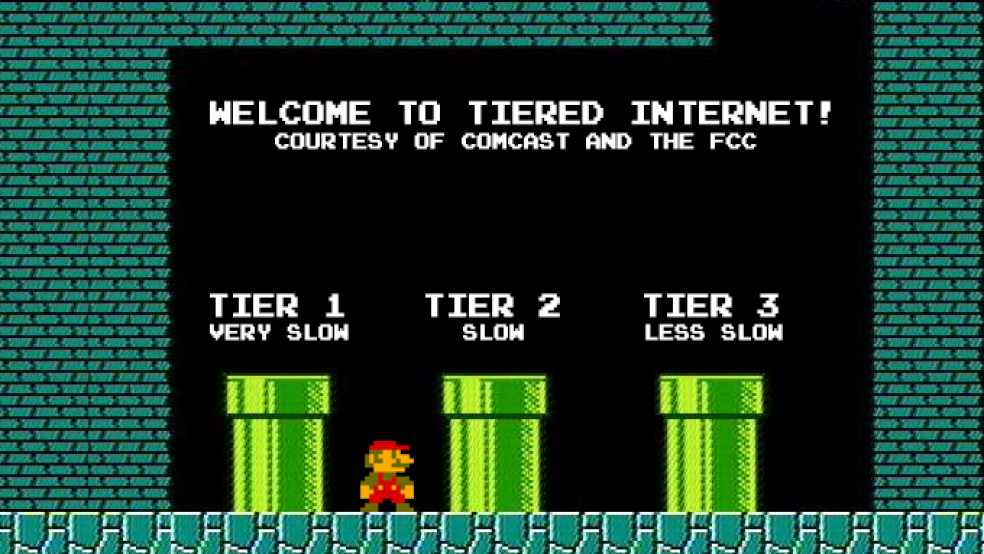A company that operates networks carrying the world’s Internet traffic set the tech world talking this week with a blog post that claimed half a dozen major broadband providers are deliberately throttling their users’ broadband connections as part of an effort to pressure other companies to pay them for access.
The accusation came from Colorado-based Level 3, a company that provides the fiber optic cable networks that content providers use to connect to the Internet. In a post on the company blog, vice president of content and media Mark Taylor said that in the past year, the company has noticed that its connection to six of the 51 companies with which it has so-called peering relationships, allowing traffic to flow between networks, are plagued by congestion and unreliability. Five of those broadband providers are in the U.S. and one is in Europe, Taylor said.
Related: Opposition to FCC’s Net Neutrality Rule Grows
Taylor described it as “congestion that is permanent, has been in place for well over a year and where our peer refuses to augment capacity.” He said the six offending Internet service providers are all “large broadband consumer networks with a dominant or exclusive market share in their local market. In countries or markets where consumers have multiple broadband choices (like the UK) there are no congested peers.”
Most damningly, Taylor claimed, the refusal to upgrade connectivity is being used as leverage to push Level 3 to pay for the improvements.
“They are deliberately harming the service they deliver to their paying customers,” Taylor wrote. “They are not allowing us to fulfill the requests their customers make for content.”
Taylor argued that peering arrangements have traditionally been “settlement-free,” meaning that if one of the networks is handling more incoming traffic than the other, there is no charge involved. The decision by the broadband providers to seek payment from intermediaries like Level 3 for essentially delivering content that the broadband companies’ own customers have requested has left the companies at an impasse.
Related: FCC Proposal Seen as ‘Disaster’ for Tech Start-Ups
“As we have explained a number of times, our policy is to refuse to pay arbitrary charges to add interconnection capacity,” Taylor wrote.
Of course, as with many disputes, there are two sides to the story. ISPs charge that “backbone” firms such as Level 3 have increasingly been getting into the business of selling preferred access to content providers.
That essentially means that rather than sharing Level 3’s connection to the ISPs with other content providers, they get a dedicated connection. Typically, the companies willing to pay for this are high-bandwidth users, such as streaming video services. ISPs have argued that if companies like Level 3 are earning fees for channeling high-bandwith content directly to them, the ISPs should get a share.
Related: The Real Threat Lurking Behind the Comcast-Time Warner Deal
It is unclear how this issue will be resolved, but ultimately, it is the consumer that will pay the price. Either ISPs will transfer their costs to their users, or the Level 3s of the world will charge content providers more, forcing them to raise the prices they charge consumers. This squabble is all about which company is going to have to anger its customers with a price hike.
The Level 3 blog post also set off a scramble to identify the five U.S. ISPs mentioned but not identified by Taylor. He provided a clue: They all have terrible consumer satisfaction ratings. This led many to speculate that Comcast, Time Warner, Charter Communications and Verizon were possible candidates.
Top Reads from The Fiscal Times


